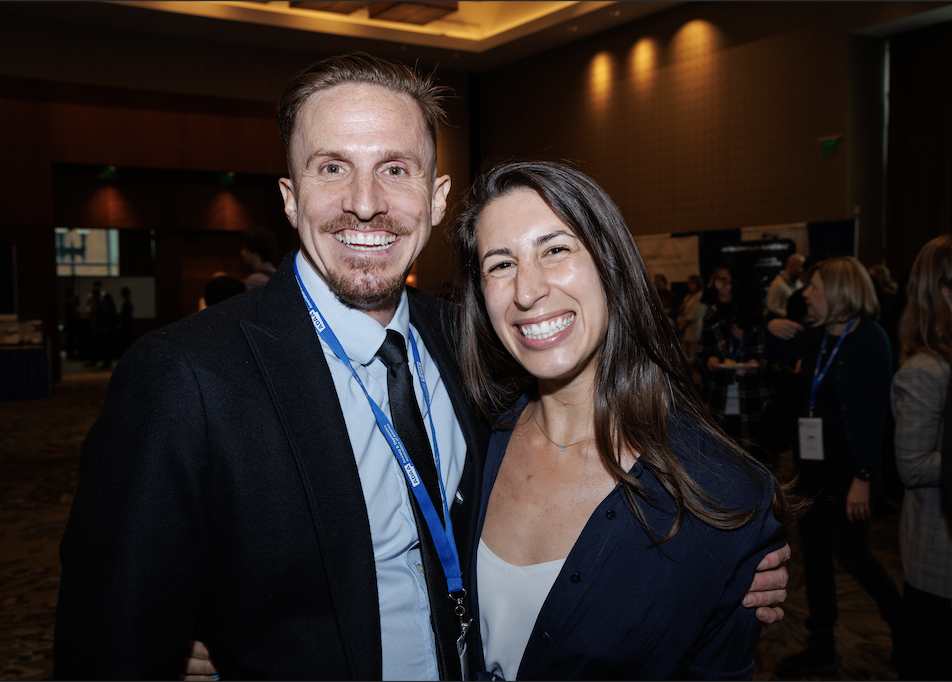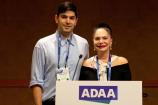An ADAA Conference Love Story!
An ADAA Conference Love Story!

Sterling and I first met at ADAA Washington D.C. in April of 2018. It was my first time attending an ADAA Conference. Sterling was working with Dr. Tanja Jovanovic at the Grady Trauma Project at Emory University in Atlanta, GA, while I was working with Dr. Arash Javanbakht in the STARC Lab at Wayne State University in Detroit, MI. Arash had recently recruited Tanja to come to Wayne State, and I was looking forward to working with them both as my Ph.D. advisors. Knowing we would all be working together, Arash and Tanja made introductions between the four of us during ADAA. I remember being so excited to meet Tanja, as she is a giant in the field that I greatly admired; I think Sterling remembers meeting me even more vividly!
When Sterling moved to Detroit, I was excited to introduce him and our other colleagues from Atlanta to the city and to my native Michigan home. It wasn’t long before Sterling and I were paddle boarding together, attending Red Wings hockey games with our friends and colleagues at Wayne, and practicing yoga together regularly. Our friendship blossomed into a relationship and a partnership.
Four years after we met at ADAA in Washington D.C., we found our story coming full circle when we moved to D.C. together for my postdoctoral fellowship at Wayne State University. This past December, in Laguna Beach, CA, Sterling proposed to me on the beach surrounded by family with our song, ‘Your Song’ by Elton John, playing in the background. We celebrated our engagement with our science family at ADAA this past April in Boston—our conference home that we have returned to together every year since the time we met. We are so grateful that our passion for neuroscience and mental health has brought us together and allowed us to pursue lines of research we care so deeply about side by side.
Each year when we return to ADAA, we are reminded of the community that has lifted us up not just in our careers but also in our personal lives. We love this extended ADAA family, and we will always fondly remember that day we met at the conference.
Find Lana Ruvolo Grasser, PhD on LinkedIn and Twitter
Find Sterling Winters on LinkedIn















